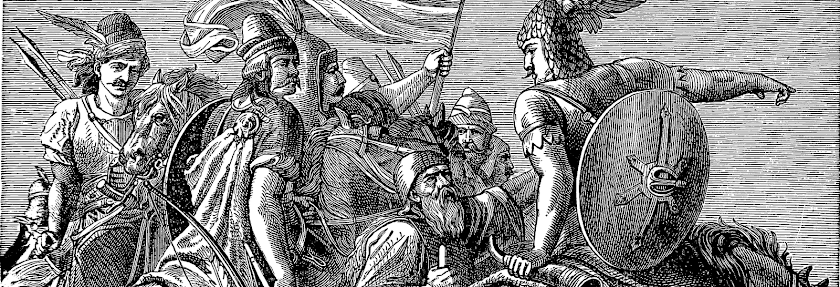A discussion with my father over the weekend regarding my strengths and weaknesses as a DM led us to the realization our sense of what makes a good campaign setting may be poorly callibrated, as a result of running few published campaign settings prior. This led to a search for the exceptions to our trend of homebrewing low-detail settings. On that list of exceptions were Eberron (played straight and run well by mine brother), Old World of Darkness / Vampire (tropes averted, heavy weapons and trenchcoats abounded), and... Midnight.
And now ACKS Midnight is on the brain again. Thanks, dad, for contributing to the Gamer ADD Epidemic.
'course, since it's in my head, I may as well write about it...
One of the main challenges of Midnight, I believe, is the monolithic nature of the Enemy. It creates a sort of paralysis upon first entering the setting - "ye old and forgotten gods, we cannot hope to survive a fortnight with these forces arrayed against us, nevermind overthrow the Shadow!" This is why I hold Lords of Shadow (or whatever the book on the Night Kings and their designs was called) to be the most useful Midnight supplement ever published (as far as DMing material goes, at least) - it is largely focused on the internal rivalries and intrigues among the forces of darkness. These are critical! These are the tools canny PCs use to survive in the Fourth Age! The Patron in Midnight is most likely not the Elven Queen in her far-off forest fastness; it is the legate willing to overlook the players' transgressions in return for plausible deniability in his quiet war for promotion with his rivals in the church. It is the ambitious third son of a Traitor Prince who needs bodyguards and assassins in his father's court. It is one of Ardherin's minions or apprentices who seeks aid in acquiring contraband books and other sensitive items at his master's behest. It is a renegade orcish captain who has fallen in with the White Mother sect, and whose plans requires covert messengers to other likeminded orcish bands. Better yet, the role of Patron is filled by all of these at once, with the party playing each servant of darkness against the others.
The wizened village hetman, the last of the ents, the elven courier with his dying request, the escaped slave, the woodsman, the Lady of the Lake, and that infamous smuggler Gnome Solo with his dwarg manservant all have their places as patrons, of course. But it is the forces of darkness, not the forces of good, which give Midnight its flavor, and it is in service to the powers of darkness that players might find the relative safety and autonomy to pursue good ends on the side (while also being tempted with promises of wealth, power, and ease for swearing themselves to darkness, body and soul...).
A game of moral dilemmas, of falls from grace and heroic sacrifices, of lifeboat utilitarianism and no-win situations, of loyalty unto death and betrayal most foul... A game of choices more difficult and more varied than "where are we going to go a-viking this week, and which of our henchmen are we going to save from the spider venom?" Such is Midnight.

You're welcome!
ReplyDeleteDad